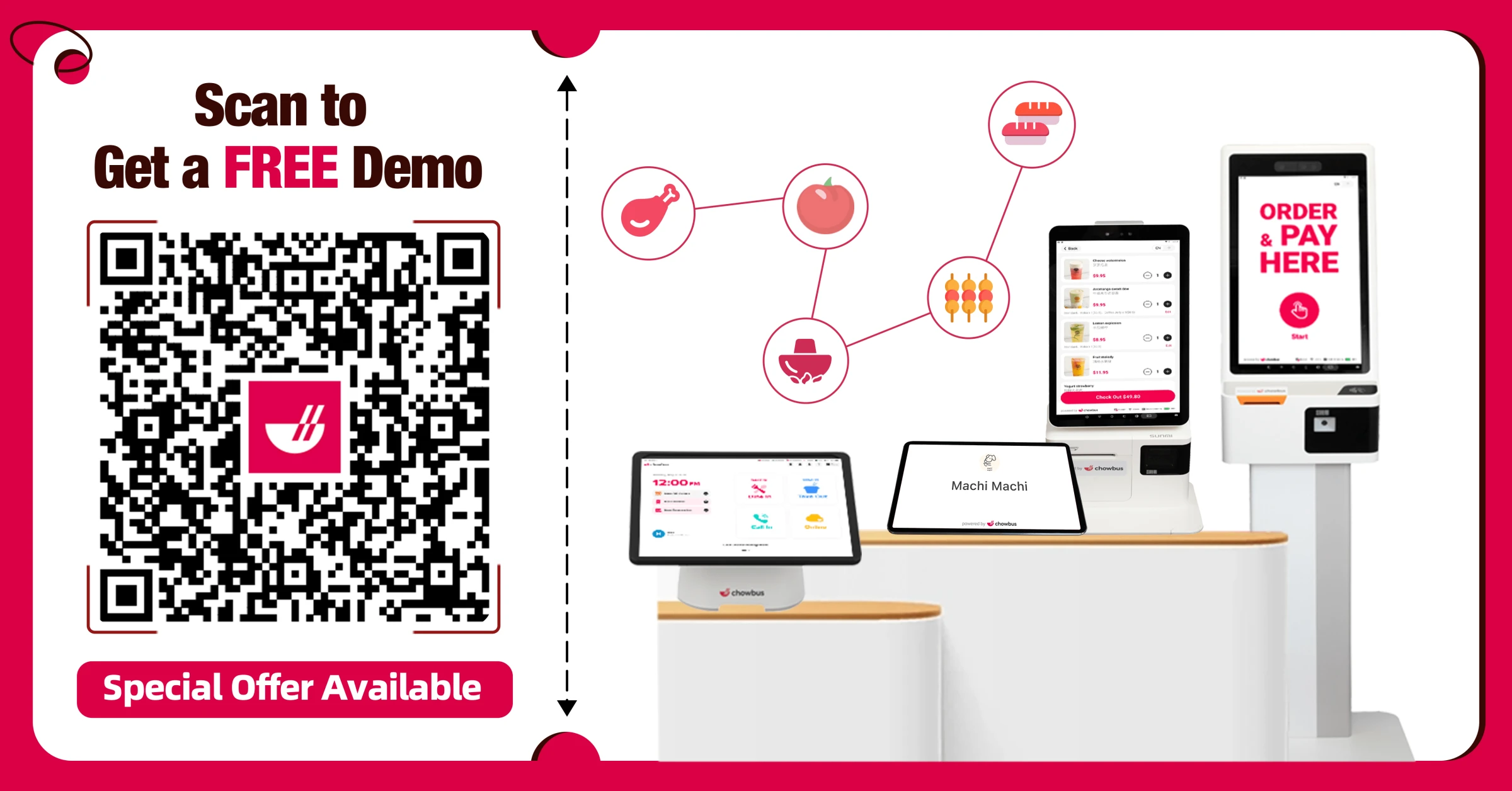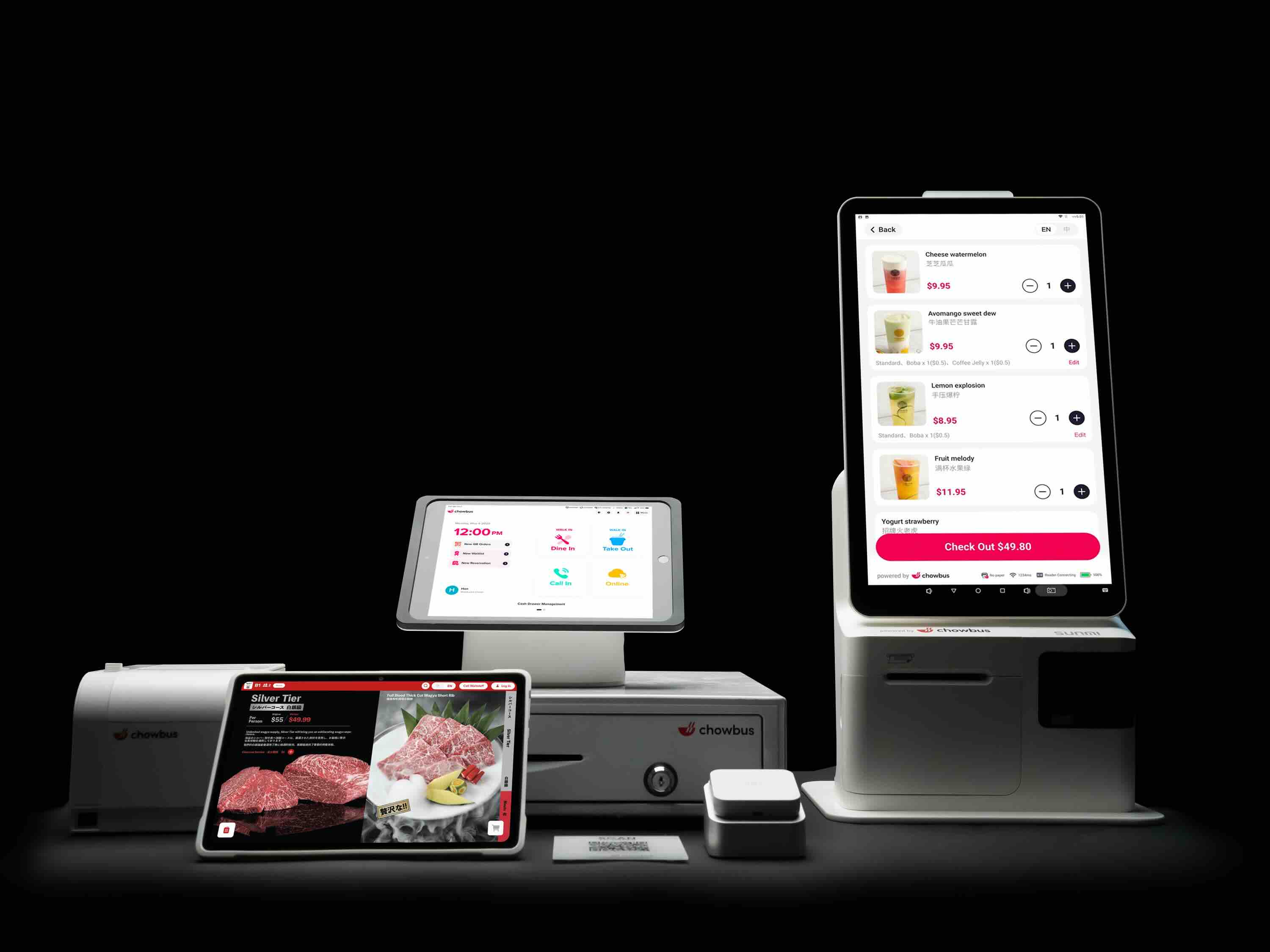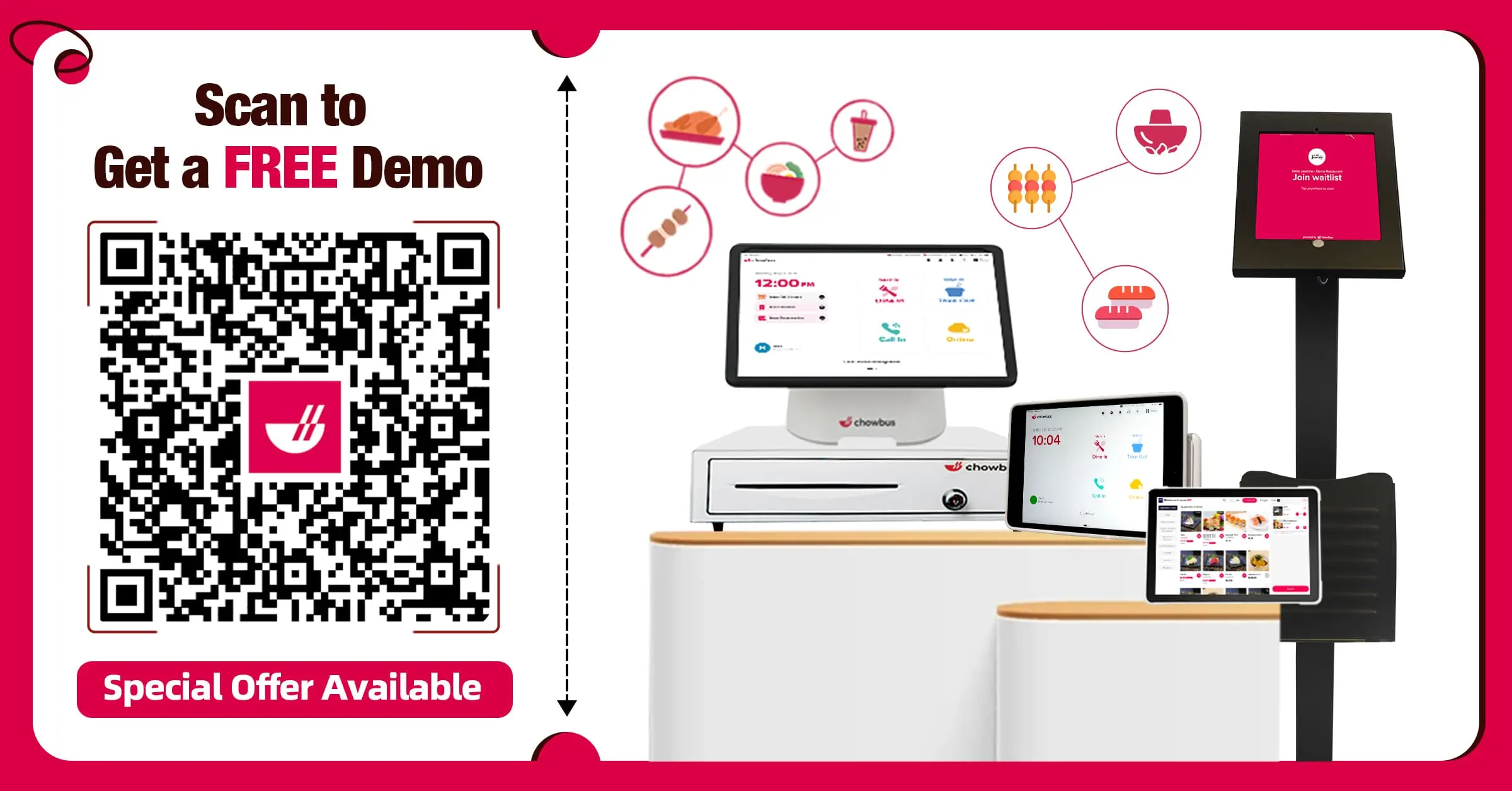The Importance of POS System in Restaurants

For many restaurant owners, ensuring the smooth operation of daily activities is a top priority, and the right tools can make all the difference. A Point of Sale (POS) system isn’t merely a tool for transaction processing. It’s an essential asset that supports every aspect of your restaurant’s operation. From boosting sales to managing customer relationships, the importance of a POS system in your restaurant is immense. But why is a POS system important? Let’s explore the diverse benefits it offers and how it can transform the way your restaurant functions.

What is the Importance of Restaurant POS Systems?
At first glance, a POS system might seem like just another tool for processing transactions, but it does much more than that. Recognizing the importance of point of sale systems in your establishment can transform the way you conduct business. These systems are crucial in streamlining service delivery and enhancing your management practices, allowing you to serve customers more efficiently while keeping a tight rein on your operations. Understanding this can ultimately transform your restaurant into a more agile and customer-focused enterprise.
Here's a closer look at why POS systems are important:
Importance of Restaurant POS Systems
1. Streamlined Operations
Streamlining your restaurant's operations is crucial for staying competitive and delivering excellent service. A POS system simplifies the essentials—from taking orders to processing payments—ensuring a smooth workflow. Imagine your servers taking orders digitally, sending them directly to the kitchen without any back-and-forth. This not only speeds up the service but also reduces the chance of errors that can occur when manually entering information.
Moreover, with real-time data at your fingertips, you can quickly identify bottlenecks or peak times and adjust your staffing accordingly. This level of efficiency minimizes wait times, enhances customer satisfaction, and turns tables faster, which ultimately increases your revenue.
2. Improved Customer Experience
Enhancing the dining experience for your patrons is crucial, and a sophisticated POS system plays a key role in achieving this. With a POS system, your staff can quickly process orders and payments, reducing wait times and minimizing errors. This efficiency not only boosts customer satisfaction but also encourages repeat visits.
Additionally, features like order tracking and real-time table management help your team deliver personalized service that makes guests feel valued. Your POS system can store customer preferences, enabling personalized interactions that can turn a one-time visitor into a loyal customer. This is the heart of great service—making each customer feel uniquely appreciated.
3. Data-Driven Decisions
In today’s competitive dining environment, making decisions based on guesswork just doesn’t cut it. Utilizing a POS system equipped with robust reporting and analytics capabilities allows you to turn everyday transactions into actionable insights. This system tracks every sale, preference, and trend, providing you with real-time data that is crucial for making informed decisions.
Whether adjusting menu items based on popularity, optimizing staff scheduling according to peak times, or setting promotional strategies, these insights help you refine operations and boost profitability. With comprehensive data at your fingertips, you’re better equipped to respond to your business's needs swiftly and effectively, ensuring you’re always one step ahead in a competitive market.
4. Increased Efficiency and Reduced Costs
A POS system brings unprecedented efficiency to your restaurant’s operations. By automating routine tasks like tracking sales and managing orders, it frees up your staff to focus more on service and less on paperwork. This automation reduces the likelihood of human errors—misplaced orders, incorrect billing—that cost time and money to rectify.
Moreover, with an efficient POS system, you can manage your resources more effectively. It provides real-time data on what’s selling and what’s not, allowing you to adjust your inventory and staffing accordingly. This targeted approach to resource management minimizes waste, reduces excess inventory costs, and optimizes staff scheduling, leading to significant cost savings over time.
By leveraging a POS system, you enhance both operational efficiency and cost-effectiveness, ensuring that every dollar and every minute counts in your restaurant’s operation.
5. Enhanced Security
In the bustling environment of your restaurant, securing every transaction is crucial. Modern POS systems are fortified with advanced security features designed to shield against fraud and guarantee the secure processing of all transactions. These systems use encryption to safeguard sensitive payment information and adhere to PCI compliance standards to protect customer data.
By implementing a reliable POS system, you’re facilitating smoother transactions and reinforcing the trust that customers place in your establishment every time they choose to dine with you. This peace of mind is invaluable, allowing both you and your patrons to focus on what matters—the dining experience.
6. Scalability and Flexibility
As your restaurant grows, so should your systems. A scalable and flexible POS system is vital for adapting to changes such as expanding your menu, increasing customer flow, or even opening new locations. With a robust POS system, scaling up doesn’t have to mean starting over.
Instead, it means adjusting smoothly to handle more orders, accommodate more customers, and manage additional staff without a hitch. This adaptability ensures that your growth is supported by a solid foundation that can evolve with your business needs, allowing you to expand your operations seamlessly without disrupting the quality of service your customers expect.
7. Marketing and Customer Retention
A robust POS system does more than handle transactions—it acts as a powerful marketing ally. By harnessing customer data captured during interactions, such as purchase history and preferences, your POS system becomes a key element of your marketing strategy. This data integration supports a variety of marketing tools that allow you to launch targeted promotions and personalized updates effectively.
With features like restaurant CRM (Customer Relationship Management), your POS system enables you to maintain detailed profiles of your customers. This information is invaluable when crafting personalized marketing messages that resonate and engage. Whether through SMS marketing campaigns or email, your messages can be finely tuned to match your audience’s preferences, increasing the likelihood of repeat visits.
Furthermore, implementing restaurant loyalty programs directly through your POS system encourages repeat business. By offering rewards for frequent visits or purchases, you actively foster customer loyalty. These programs are easy to manage and customize through your POS, making it simple to adjust promotions and track their effectiveness in real-time.
Lastly, the ease of launching restaurant promotions via your POS system cannot be overstated. Whether a discount on certain days or special deals for loyal customers, these promotions are seamlessly integrated into the checkout process, ensuring that your staff can apply them without hassle. This integration ensures that your marketing efforts are not only effective but also a natural part of the customer experience.
8. Effortless Payment Processing
In today’s market, diners expect flexibility in payment options. Whether traditional methods like cash and credit cards or more modern approaches like digital wallets and contactless payments, a robust POS system accommodates all. This versatility makes transactions smoother and faster for every customer and enhances the overall dining experience by reducing wait times at checkout. The ease of payment processing ensures that your guests leave satisfied, reflecting positively on your restaurant’s efficiency and customer service.
9. Seamless Integration
Integrating a POS system effectively ties together the various operational aspects of your restaurant. By seamlessly connecting with reservation systems, third-party delivery services, online ordering, and more, your POS system acts as a central command center. This connectivity ensures that all components of your business communicate with each other efficiently.
For instance, when an order comes in through a third-party delivery platform, it’s automatically sent to your kitchen without the need for manual entry. This integration saves time and reduces the chances of errors, ensuring that your service remains swift and precise. In short, a well-integrated POS system simplifies management tasks and supports a cohesive operation, allowing you to focus on delivering exceptional dining experiences.
10. Increased Sales Through Innovative Ordering Solutions
Innovative ordering solutions, enabled by advanced POS systems, open new avenues for boosting your restaurant’s sales. Features like tableside ordering, QR code ordering, and kiosk ordering not only cater to customer preferences for swift and autonomous service but also reduce wait times, turning tables faster during peak hours. Online ordering integration extends your service beyond your restaurant’s traditional confines, accommodating the growing demand for home delivery and pickup services.
These tools do more than streamline operations. They enhance the customer experience. By offering a variety of ordering methods, you’re not just simplifying transactions. You’re meeting your customers where they are, which is essential in today’s market. Each interaction, whether at the table with a server or through a smartphone interface, is an opportunity to increase order accuracy, suggest personalized upsells, and ensure a satisfying dining experience that encourages repeat business.
11`. Centralized Control Over Operations
A robust POS system puts you in command of your restaurant’s operations from a single, central point. This centralized control allows for consistent monitoring and managing of all activities within your establishment. You can oversee sales, track performance metrics, and ensure service standards are uniformly maintained across all shifts and locations. This oversight is crucial in maintaining high service quality and operational consistency, making it easier to identify areas needing improvement and swiftly implement necessary changes. Such a system simplifies management and empowers you to make informed decisions that drive your restaurant’s success.
12. Improved Accuracy
Accuracy is crucial in the restaurant business, where even a small mistake can impact customer satisfaction. A POS system enhances the precision of your operations from the kitchen to the table. It accurately records orders, transmitting the exact details to the kitchen staff without the mishaps that can happen with handwritten tickets or verbal communication. This reduces the likelihood of errors and ensures that each dish is prepared as the customer intended. This precision extends to billing, where the POS system automatically calculates the total, applies discounts, and processes payments, ensuring that each transaction is handled correctly.
By maintaining high accuracy across all areas, a POS system not only streamlines your workflow but also boosts customer trust and satisfaction, essential for fostering repeat business. This accuracy ultimately supports your restaurant’s reputation for reliability and high-quality service, which are key to standing out in a competitive market.
Conclusion
The importance of a POS system in restaurants is evident in the numerous benefits it offers. From streamlining operations and improving customer experience to providing data-driven insights and enhancing security, a POS system is a valuable asset for any restaurant. By implementing the right POS system, you can boost efficiency, reduce costs, and drive your restaurant toward success.
Ready to see how a POS system can revolutionize your restaurant's operations?
Contact us today to learn more about our POS solutions and schedule a free demo. Let's help you boost your operational efficiency and enhance your customer service with the best restaurant POS system in the US.

Frequently Asked Questions About the Importance of POS System in Restaurants
Discover essential insights into how a POS system can transform your restaurant operations and boost efficiency. This FAQ section addresses key questions about the significance and benefits of POS systems in the restaurant industry.
Why Do Restaurants Need POS Systems?
Restaurants need POS (Point of Sale) systems to streamline operations, improve order accuracy, and enhance customer service. A POS system integrates all transactional processes, from taking orders to processing payments, ensuring efficient service delivery. It also provides valuable data that can help in managing inventory, analyzing sales trends, and making informed business decisions. By optimizing these aspects, a POS system supports a restaurant's growth and profitability.
How Does POS be Helpful in the Restaurant Industry?
A POS (Point of Sale) system is crucial in the restaurant industry for streamlining operations. It efficiently manages orders, processes payments, and tracks sales data. Additionally, it enhances customer service by speeding up transactions and accurately managing inventory, leading to better order accuracy and quicker service. By integrating with other systems, a POS can also help create targeted marketing campaigns, analyze business trends, and improve overall management.
What are the Benefits of POS in Hospitality Industry?
POS systems in the hospitality industry enhance operational efficiency by streamlining transactions and reducing wait times. They improve order management and billing accuracy and offer robust inventory tracking to minimize waste. Additionally, POS systems facilitate better customer service with personalized interactions and loyalty programs and provide valuable data analytics to help businesses make informed decisions.
Why Do You Need a POS?
A POS system streamlines sales transactions, inventory management, and customer data in one platform, enhancing efficiency and accuracy in your business operations. It also provides valuable insights through reporting features, helping you make informed decisions to drive growth and improve customer satisfaction.

Recommended Articles: